
The Secret Agent: "A Simple Tale"
¥18.74
AMONG the ranks of the great astronomers it would be difficult to find one whose life presents more interesting features and remarkable vicissitudes than does that of Galileo. We may consider him as the patient investigator and brilliant discoverer. We may consider him in his private relations, especially to his daughter, Sister Maria Celeste, a woman of very remarkable character ; and we have also the pathetic drama at the close of Galileo's life, when the philosopher drew down upon himself the thunders of the Inquisition. The materials for the sketch of this astonishing man are sufficiently abundant. We make special use in this place of those charming letters which his daughter wrote to him from her convent home. More than a hundred of these have been preserved, and it may well be doubted whether any more beautiful and touching series of letters addressed to a parent by a dearly loved child have ever been written. An admirable account of this correspondence is contained in a little book entitled "The Private Life of Galileo," published anonymously by Messrs. Macmillan in 1870, and I have been much indebted to the author of that volume for many of the facts contained in this chapter. Galileo was born at Pisa, on 18th February, 1564. He was the eldest son of Vincenzo de Bonajuti de Galilei, a Florentine noble. Notwithstanding his illustrious birth and descent, it would seem that the home in which the great philosopher's childhood was spent was an impoverished one. It was obvious at least that the young Galileo would have to be provided with some profession by which he might earn a livelihood. From his father he derived both by inheritance and by precept a keen taste for music, and it appears that he became an excellent performer on the lute. He was also endowed with considerable artistic power, which he cultivated diligently. Indeed, it would seem that for some time the future astronomer entertained the idea of devoting himself to painting as a profession. His father, however, decided that he should study medicine. Accordingly, we find that when Galileo was seventeen years of age, and had added a knowledge of Greek and Latin to his acquaintance with the fine arts, he was duly entered at the University of Pisa. AMONG the ranks of the great astronomers it would be difficult to find one whose life presents more interesting features and remarkable vicissitudes than does that of Galileo. We may consider him as the patient investigator and brilliant discoverer. We may consider him in his private relations, especially to his daughter, Sister Maria Celeste, a woman of very remarkable character ; and we have also the pathetic drama at the close of Galileo's life, when the philosopher drew down upon himself the thunders of the Inquisition. The materials for the sketch of this astonishing man are sufficiently abundant. We make special use in this place of those charming letters which his daughter wrote to him from her convent home. More than a hundred of these have been preserved, and it may well be doubted whether any more beautiful and touching series of letters addressed to a parent by a dearly loved child have ever been written. An admirable account of this correspondence is contained in a little book entitled "The Private Life of Galileo," published anonymously by Messrs. Macmillan in 1870, and I have been much indebted to the author of that volume for many of the facts contained in this chapter.

The Confession
¥28.04
Jacob Grey rejtélyes figura. Kevesen ismerik ?t személyesen. Azt beszélik, az Egyesült ?llamok egyik nagyvárosában él, éjjelente pedig az utcákat rója, így találja ki s?tét hangulatú, izgalmas t?rténeteit. ?Az idegen kopogtat, majd elfordítja a fejét. Egyenesen Krára néz. Most a varjak is elmentek, és a világon senki nincs itt, csak Kra és az idegen. A fiú egy aranygy?r?t pillant meg a férfi mutatóujján. Az ékszer ovális felületére valamilyen képet véstek. Egy pók potrohának és nyolc lábának éles vonalait. A férfi alig mozgó ajkakkal suttogja: – ?rted j?ttem!”
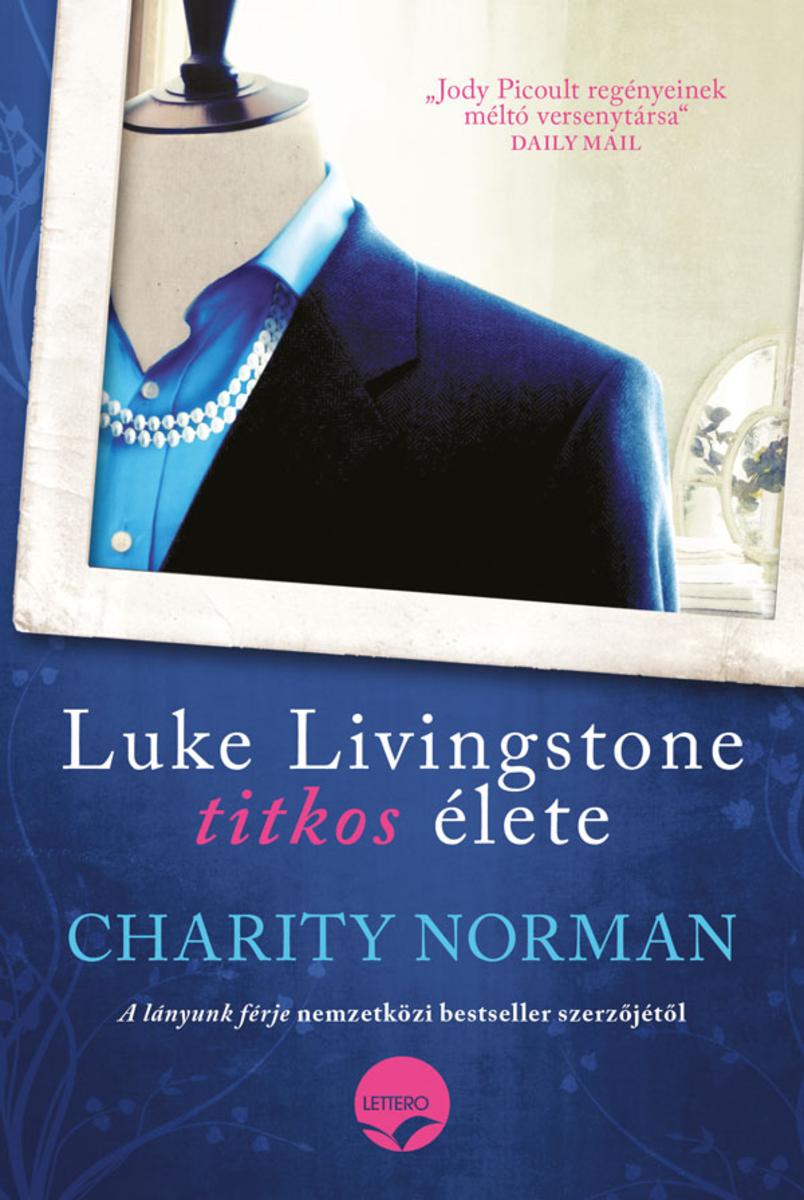
Luke Livingstone titkos élete
¥69.65
Soha nem számoltam, hogy hány mérkzést bundáztam meg, de úgy gondolom 80-100 meccsrl lehet szó” - Wilson Raj Perumal, a Bundakirály. Wilson Raj Perumal kétségtelenül a modern futball legnagyobb fogadási csalója, akit csak hátán hordott a fld. Szingapúr egy eldugott falucskájában született az 1960-as években, innen küzdtte fel magát a bundavilág csúcsára, és lett a FIFA által leginkább keresett bnz. Perumalt 2011 februárjában tartóztatták le Finnországban. gy dnttt, együttmkdik a hatóságokkal, és segít feltárni az egész világot behálózó bnszvetkezet titkait. A Bundakirály nem fogja vissza magát: kitárulkozása során elképeszt mennyiség meccsrl lebbenti fel a fátylat. Olyanokról, amelyeket mi izgatottan néztünk végig, és amelyeknek már azeltt megvolt a végeredménye, hogy elkezdték volna.
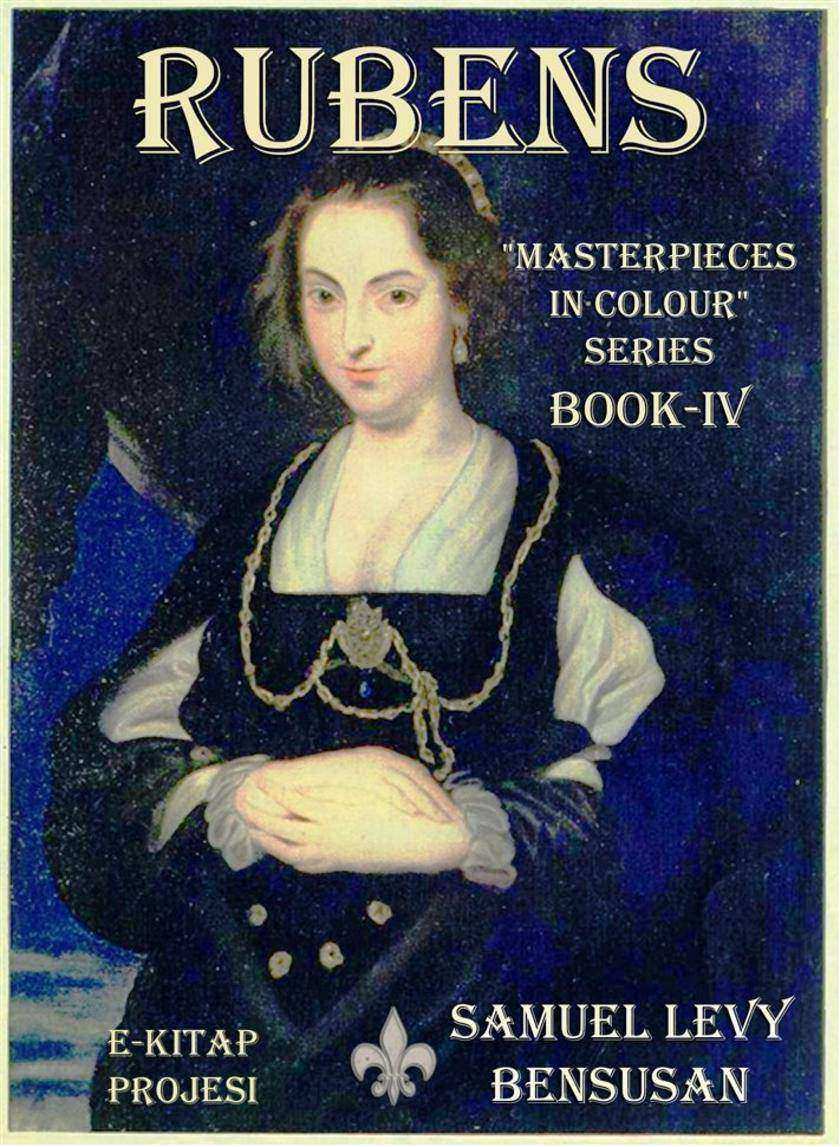
Rubens: "Masterpieces in Colour" Series: Book-IV
¥28.04
In “True Ghost Stories,” Mr. Carrington presents a number of startling cases of this character; but they are not the ordinary “ghost stories”—based on pure fiction, and having no foundation in reality. Here we have a well-arranged collection of incidents, all thoroughly investigated and vouched for, and the testimony obtained first-hand and corroborated by others. The chapter on “Haunted Houses” is particularly striking. The first chapter deals with the interesting question, “What is a Ghost?” and attempts to answer this question in the light of the latest scientific theories which have been advanced to explain these supernatural happenings and visitants. It is a book of absorbing interest, and cannot fail to grip and hold the attention of every reader—no matter whether he be a student of these questions, or one merely in search of hair-raising anecdotes and stories. He will find them here a-plenty! The following little book endeavors to bring together a number of “ghost stories” of the more startling and dramatic type,—but stories, nevertheless, which seem to be well authenticated; and which have been obtained, in most instances, at first hand, from the original witnesses; and often contain corroborative testimony from others who also experienced the ghostly phenomena. Some of these incidents, indeed, rise to the dignity of scientific evidence; others are less well authenticated cases,—but interesting for all that. These have been grouped in various Chapters, according to their evidential value. Chapters II. and III. contain well-evidenced cases, some of which have been taken from the Proceedings and Journals of the Society for Psychical Research (S. P. R.), or from Phantasms of the Living, or from other scientific books, in which narratives of this character receive serious consideration. Chapter V., on the contrary, contains a number of incidents which,—striking and dramatic as they are,—cannot be included in the two earlier Chapters, as presenting real evidence of Ghosts; but are published rather as startling and interesting ghost stories. Chapter IV., devoted to “Haunted Houses,” contains brief accounts of the most famous Haunted Houses, and of the phenomena which have been witnessed within them. Appendix A gives a list of a few of the important “Historical Ghosts,” Appendix B describes the “Phantom Armies” lately seen by the Allied troops in France—while Appendix C lists a number of books of Ghost Stories which the interested reader may care to peruse. A short Glossary, at the beginning of the book, explains the meaning of certain terms used,—which are not, perhaps, ordinarily met with in books of this character. In the Introductory Chapter, I have endeavored to explain, very briefly, the nature and character of Ghosts; what they are; and the various scientific theories which have been brought forward, of late years, to explain Ghosts. I hope that this may prove of interest to the reader; in case it does not do so, he is invited to “skip” directly to Chapter II., which begins our account of “True Ghost Stories.” I wish to express my thanks in this place to the Council of the English S. P. R. for special permission to quote and to summarize several striking cases here reproduced; also to Miss Estelle Stead, for permission to utilize several cases previously printed at length in Mr. Wm. T. Stead’s collections of Ghost Stories. H. C. [Author]
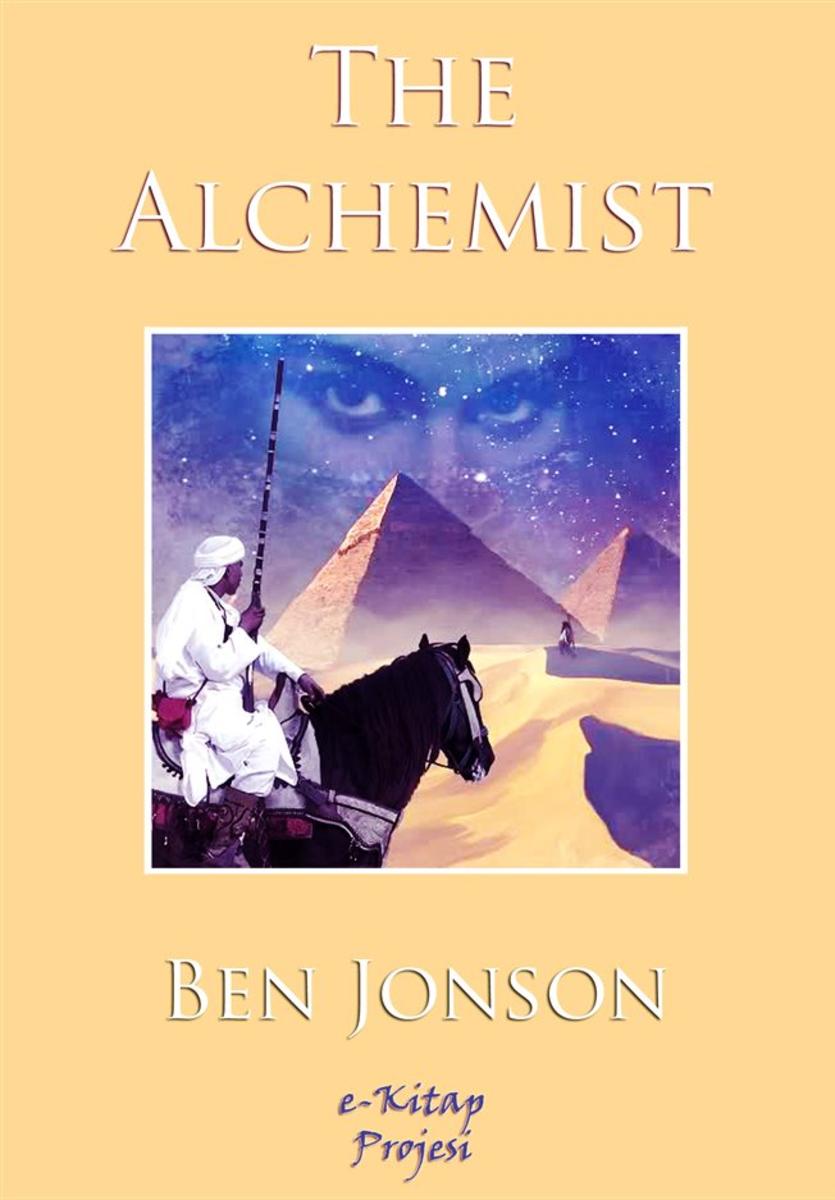
The Alchemist
¥18.74
Of all the myths which have come down to us from the East, and of all the creations of Western fancy and belief, the Personality of Evil has had the strongest attraction for the mind of man. The Devil is the greatest enigma that has ever con-fronted the human intelligence. So large a place has Satan taken in our imagination, and we might also say in our heart, that his expulsion therefrom, no matter what philosophy may teach us, must for ever remain an impossibility. As a character in imagi-native literature Lucifer has not his equal in heaven above or on the earth beneath. In contrast to the idea of Good, which is the more exalted in proportion to its freedom from anthropomor-phism, the idea of Evil owes to the presence of this element its chief value as a poetic theme. The discrowned archangel may have been inferior to St. Michael in military tactics, but he cer-tainly is his superior in matters literary. The fair angels—all frankness and goodness—are beyond our comprehension, but the fallen angels, with all their faults and sufferings, are kin to us. There is a legend that the Devil has always had literary aspi-rations. The German theosophist Jacob B?hme relates that when Satan was asked to explain the cause of God’s enmity to him and his consequent downfall, he replied: “I wanted to be an author.” Whether or not the Devil has ever written anything over his own signature, he has certainly helped others compose their greatest works. It is a significant fact that the greatest im-aginations have discerned an attraction in Diabolus. What would the world’s literature be if from it we eliminated Dante’s Divine Comedy, Calderón’s Marvellous Magician, Milton’s Paradise Lost, Goethe’s Faust, Byron’s Cain, Vigny’s Eloa, and Lermon-tov’s Demon? Sorry indeed would have been the plight of litera-ture without a judicious admixture of the Diabolical. Without the Devil there would simply be no literature, because without his intervention there would be no plot, and without a plot the story of the world would lose its interest. Even now, when the belief in the Devil has gone out of fashion, and when the very mention of his name, far from causing men to cross themselves, brings a smile to their faces, Satan has continued to be a puissant personage in the realm of letters. As a matter of fact, Beelzebub has perhaps received his greatest elaboration at the hands of writers who believed in him just as little as Shake-speare did in the ghost of Hamlet’s father.
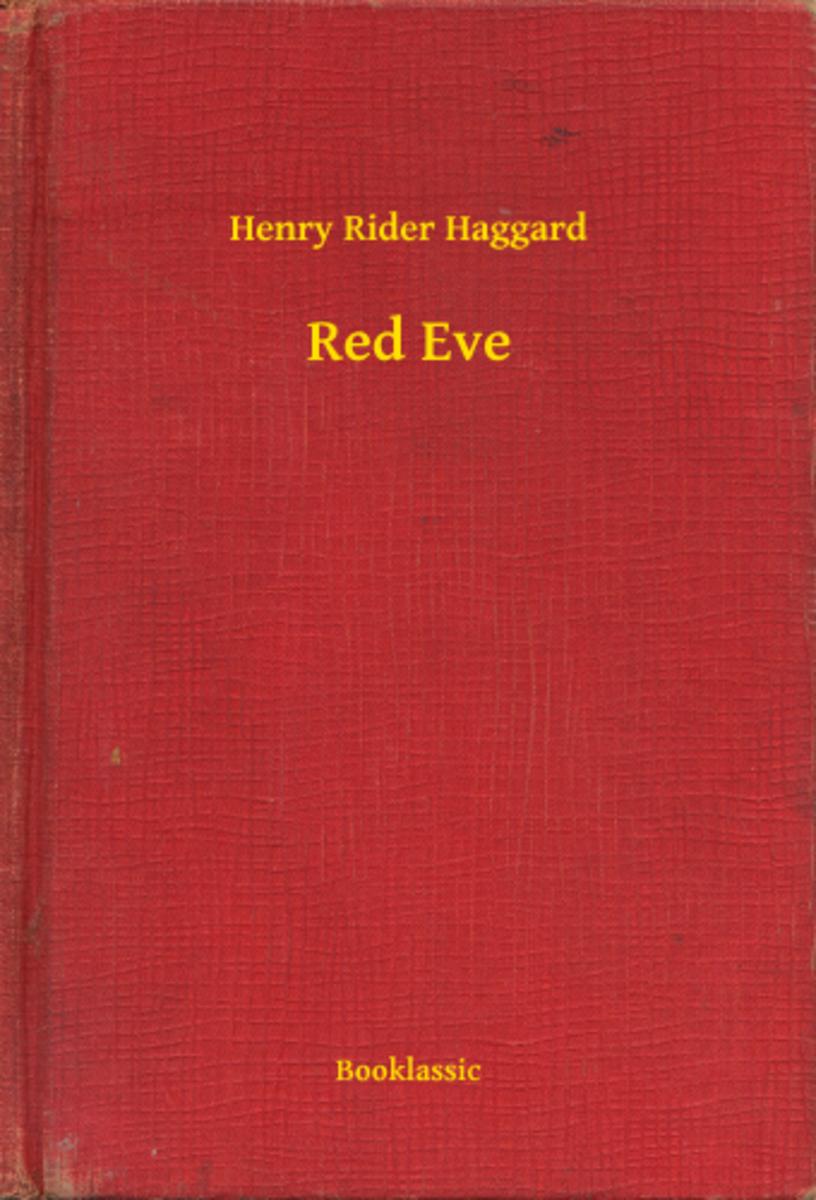
Red Eve
¥8.01
rülk, hogy úgy dntttél, belenézel a knyvembe. Tudod, ez az hely, ahol a szerzk ismert emberektl idéznek arról, hogy milyen nagyszer ez a knyv. De én ezt nem igazán szeretem. Olcsó trükknek tartom, ami csak arra jó, hogy bepalizza az embereket. Nem hiszek benne. Te ennél úgyis okosabb vagy, és szebb úgysem dlnél be. Nagyon tetszik a blúzod jól megy a knyvemhez! ELLEN DEGENERES Imádom, ahogy fogod ezt a knyvet. Látszik, hogy erre születtél Vedd meg és el se engedd! ELLEN DEGENERES Tudod, mi tetszik nekem a legjobban benned Az, hogy így egymásra találtunk. Na meg a szemed! ELLEN DEGENERES Te vagy a legkedvesebb olvasóm! Minden idk abszolút kedvence. De psszt... meg ne mondd a tbbieknek! ELLEN DEGENERES

Smith and the Pharaohs, And Other Tales
¥8.01
Te megérdemelnéd a második esélyt? Anna mély érzés? lány, aki szeretetre vágyik. Igazán megérdemelné, hogy boldog legyen. A Defektesek dobosa, András megadja neki mindazt, amire szüksége van: szerelmet, nyugalmat és boldogságot. De vajon mindez az ?vé lehet anélkül, hogy megjárná a poklot? Annának nem adatik meg a k?nnyebbik út… Az élet tragédiák sorozata. Anna, amikor már mindent elveszített, ráébred, hogy választania kell: hagyja, hogy végleg maga alá temesse az ?nsajnálat, vagy belekapaszkodik egy halvány napsugárba, és elhiszi, hogy az rá ragyog. Vajon Anna képes szembe nézni saját félelmeivel, és megleli azt, amiért érdemes küzdenie? Lesz-e elég bátorsága újra szeretni és az új szerelemért áldozatokat hozni? Tud-e küzdeni egy olyan férfi szerelméért, akivel a kapcsolatát mindenki helyteleníti? Vagy engedi, hogy mások irányítsák, azt remélve, hogy így nem érheti t?bb fájdalom? Julia Lewis Thomson valódi mélységekbe és magasságokba r?píti olvasóját. A szerz? hisz abban, hogy kockázatokat kell vállalnunk ahhoz, hogy megtalálhassuk a boldogságot, amihez olykor fel kell égetnünk a hidakat magunk m?g?tt, illetve meg kell bocsátanunk magunknak és a szeretteinknek.

The Time Machine
¥18.74
zet olarak tüm tp almalar & Bilim felsefesi & Hayat hikayesi & Metodolojisi ve Tahlilleri ilaveli bni Sin, daha ocukluunda, evresini hayrete düüren bir zek ve hafza rnei gstermitir. Küük yata ann bütün, ilimlerini renmiti. Gündüz ve gece okumakla vakit geirir, mum nda saatlerce, ou zaman sabahlara kadar alrd. Pek az uyurdu. Buhara Emiri Nuh bni Mansur’u ar bir hastalktan kurtard ve bu yüzden de Samanoullar saraynn kütüphanesinde alma iznini ald. Bu sayede pek ok eseri elinin altnda bulduu iin vaktini kitap okumak ve yazmakla geirdi. Hükümdar ldüü zaman o, henüz yirmi yandayd ve Buhr'dan ayrlarak Harzem'e gitti: EI-Brni gibi büyük bir hret ve deerin, onun alkanlna, bilgisine deer vermesi, kendisini yanna kabul etmesi, beraber almas, hakknda kskanla yol at. Bu yüzden takibata bile urad. Harzem'de barnamayarak yeniden yollara dütü. ehirden ehre dolaarak nihayet Hemedan'a kadar geldi ve orada kalmaya karar verdi. bni Sn, ou fizik, astronomi ve felsefeyle ilgili olarak 150 civarnda eser yazmt. Farsa olan birka dnda bunlarn hepsi Arapa'dr. ünkü o devirde ilim eserlerini Arap diliyle yazmak detti. Arapa'ya bu bakmdan deer verilirdi. Bilhassa tp ilmine dair aratrmalar son derece orijinal ve dorudur. Bu yüzden dou ve bat hekimliine kelimenin tam anlamyla, 600 yl, hükmetmitir. Eserleri Bat dillerine Latince yoluyla evrilerek Avicenna diye hrete ulaan bni Sin, yanl olarak bir süre Avrupa'da ranl hekim ve filozof olarak tannmtr. Bunun da sebebi, eserlerini Türke yazmam olmasndandr… Bununla beraber, batllar da kendisini Hkim-i Tb, yani hekimlerin piri ve hükümdar olarak kabul etmilerdir. 16 yandayken pratik hekimlie balayan bni Sin, resm saray doktorluu da yapmtr. NDEKLER: BN- SNA’NIN HAYATI ve ALIMALARI ESERLER bn-i Sina’nn Felsefi Anlay Varlk ve Mantk BN- SNA VE VARLIK FELSEFES VARLIK FELSEFES VE BN SNA* Varla likin Grüleri: BN- SNA’DA 3 MESELE A- VARLIK BLNC’NN NCEL B- NAYET VE ERRN LAH KAZADA BULUNUU (KTLK PROBLEM) C-FLLERN ALLAHTAN SUDURU BN- SNA’NIN BLM FELSEFES SLAMDA SMYA VE BN- SNA’NIN SMYAYA KATKILARI.. Tarihi zgemii nkar ve Muhalefet Batya Etkisi BN- SNA’NIN TIP FELSEFES BN- SNANIN TIP TARHNDEK YER…. Tp Sahasndaki Baz Bulular TIBBIN KANUNU ESER HAKKINDA.. BN- SNA’NIN FA FELSEFES BN- SNA’NIN VARLIK VE EVREN FELSEFES BN- SNA VE SUDUR NAZARYES… BN- SNA VE SPNOZADA DN VE FELSEFE LKLER B. BN SN FELSEFESNDE LEMN KIDEM/EZELL SORUNU C. GENEL DEERLENDRME SLAM METAFZ VE BN- SNA slam Metafiziine Ksa Bir Bak: bn Sn’ya Gre Nefsin Bedenden Ayrl Sonras Durumu BN- SNA’NIN “El-rtü ve’t-Tenbhtü fi’l-Mantk ve’l-Hikme” Kitab Hakknda BN- SNA VE ETM BN- SNA’NIN PSKOLOJK YAKLAIMLARI bn Sina’nn Aile Siyasetine Dair Risalesindeki Temel Grüleri KEND AZINDAN BN- SNA Genlik ve Olgunluk Devresi (M. 997 -1005) Seyahatler Devresi (M.1005-1014) (bn-i Sn’nn Hayatnda) Büveyhler Devresi bn-i Sn’nn Hayatnda Kkyler Devresi (M. 1024 -1037) BN- SNA’DA NAMAZ VE FA BALANTISI BN- SN’NIN NAMAZ RSALES Namazn Mahiyeti: Namaz: Namaz, nefs-i natkann, gk cisimlerine benzemesi ve ebed sevap istemek iin Mutlak olan Hakk’a tapnmas demektir. Namazn hakikati: Namazn Zahir ve Batna Ayrlmas Beyanndadr: Bu blüm nceki iki ksm namazdan her birinin kime ve hangi snfa vacib olduunu bildirir: BN- SNA’NIN RUH LE LGL KASDES ZETLE BN- SNANIN BLME KATKILARI BN- SNANIN UNUTULMAYAN SZLER
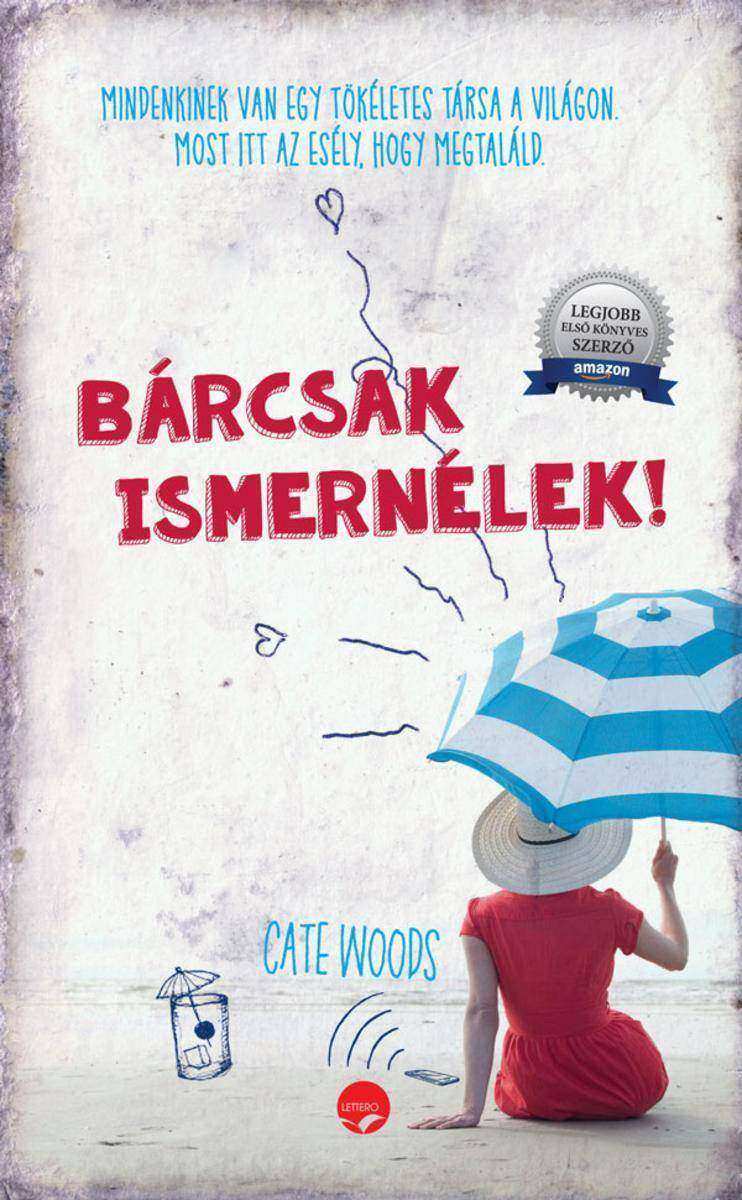
Bárcsak ismernélek!
¥63.85
Ez Jay Dobyns története, azé a szövetségi ügynöké, aki els?ként férk?zött be a törvényen kívüli Hells Angels Motorcycle Club legbels?bb köreibe. A 21 hónapon át tartó akció kis híján az életébe került, és majdnem ráment a családja és az ép esze is. Kezd? ügynökként mellbe l?tték, úgy vásárolta a gépfegyvereket, mint más a tejet, 160 km/órás sebességgel száguldozott az autópályán, illetve részt vett a Hells Angels és halálos ellensége, a Mongols klub között kitört háborúban. Ez csak pár olyan esemény, amit Dobyns felidéz ebben a lélegzetelállító, els? olvasatra hihetetlennek t?n?, de az els?t?l az utolsó szóig igaz történetben. Dobyns nem titkolja el szívszorító kalandjának egyetlen részletét sem. A motorostalálkozókon és a klubházakban rendezett bulikon, a közös motorozások és verekedések alatt összebarátkozik k?kemény motorosokkal, a metamfetamintól hajtott n?ikkel, fegyvermániásokkal, pszichopata sittesekkel, és még a Mocskos Pár nev? elitklub tagjaival is, akik a Hells Angels nevében különösen kegyetlen, er?szakos b?ncselekményeket követtek el. Az er?sen ?rzött bulikon olyan legendás Hells Angels-tagokkal találkozik, mint Chuck Zito, Johnny Angel vagy a motorosklubok keresztapája, Ralph „Sonny" Barger. A beilleszkedéshez mindkét karját teletetováltatja, hogy a tiszteletüket kivívja, megfogadja, hogy bebizonyítja: k?kemény gyilkos. A legnehezebb azonban a rákényszerített kett?s élet: h?séges felesége és szeret? gyermekei, valamint a motoros lét között ?rl?dik. Megfogadja, hogy ? lesz az els? olyan szövetségi ügynök, akit a Hells Angels teljes jogú tagjának választanak, és beférk?zik a klub áthatolhatatlannak hitt legbels?bb köreibe. Ezért nagy árat kénytelen fizetni: a cél érdekében olyan mélyre alámerül ebbe a veszélyes világba, hogy kis híján elveszti önmagát, de kénytelen rádöbbenni, hogy miközben ? beépült a klubba, az is beépült az ? életébe, és amennyire a Hells Angels tagjai sem csak kifejezetten rosszak, ? sem csak jó. A Donnie Brasco maffiába való beépülésére emlékeztet? története mindenki szemét felnyitja a motorosbandák zárt, titokzatos világára. Ilyen messzire Hunter S. Thompson korszakalkotó munkája óta nem jutott senki a Hells Angelsszel. A könyvb?l mindent megtudunk arról a leny?göz?en veszélyes, de egyben vonzó bajtársiasságról, a nihilizmusról, a gy?löletr?l és megfélemlítésr?l, valamint a tagok között valóban létez? testvéri szeretetr?l, ami az egyetlen, t?sgyökeres amerikai b?nszövetkezetet jelképezi.
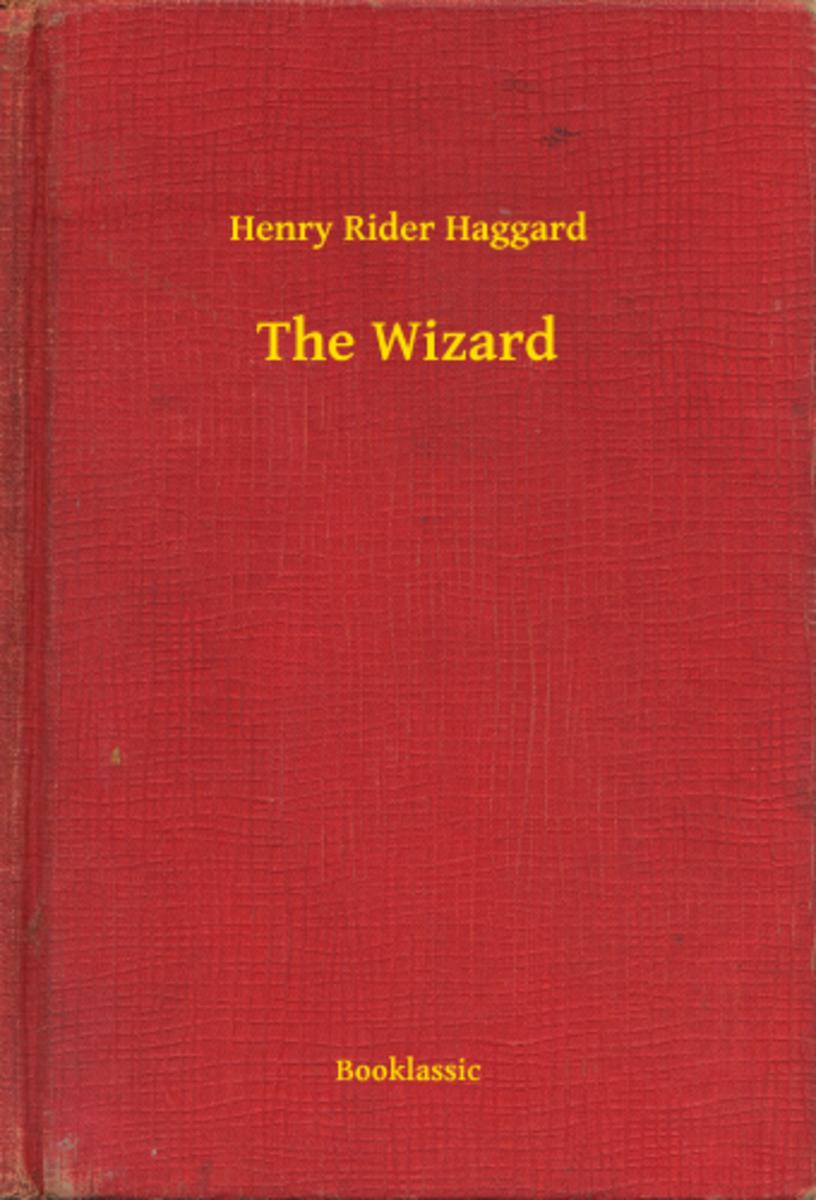
The Wizard
¥8.01
***Izgalom és romantika Szulejmán udvarában*** Milyen rejtélyes okból kerül egy bátor magyar lány a szultán háremébe? Mi lehet a kapcsolat a szultán, a királyné, a pap és a fiatal udvarh?lgy k?z?tt? 1541. augusztus 29-én Szulejmán elfoglalja Buda várát. Ezen a napon nemcsak a magyar t?rténelem, hanem egy fiatal lány élete is hatalmas fordulatot vesz. A húszéves Illésházy Anna csupán küls?leg t?nik egyszer? udvarh?lgynek. Csak nagyon kevesen ismerik az évszázados titkot, melyet ?riz. Izabella királyné, és a furfangos diplomáciai zseni, Fráter Gy?rgy embert próbáló feladattal bízza meg. Olyan felel?sséget helyeznek a vállára, melynek súlyát akárki nem bírná el. ? azonban kül?nleges. A sors nap mint nap új kalandok elé állítja, és nemcsak az ellenségeivel, de saját magával is meg kell küzdenie. A Szulejmán és a magyar udvarh?lgy R. Kelényi Angelika valós t?rténelmi eseményeken alapuló romantikus kalandregénye, melyben egy évszázados titok, hazugságok, gyilkosság és egy szenvedélyes szerelem alakítják az eseményeket a XVI. század sorsfordító id?szakában.
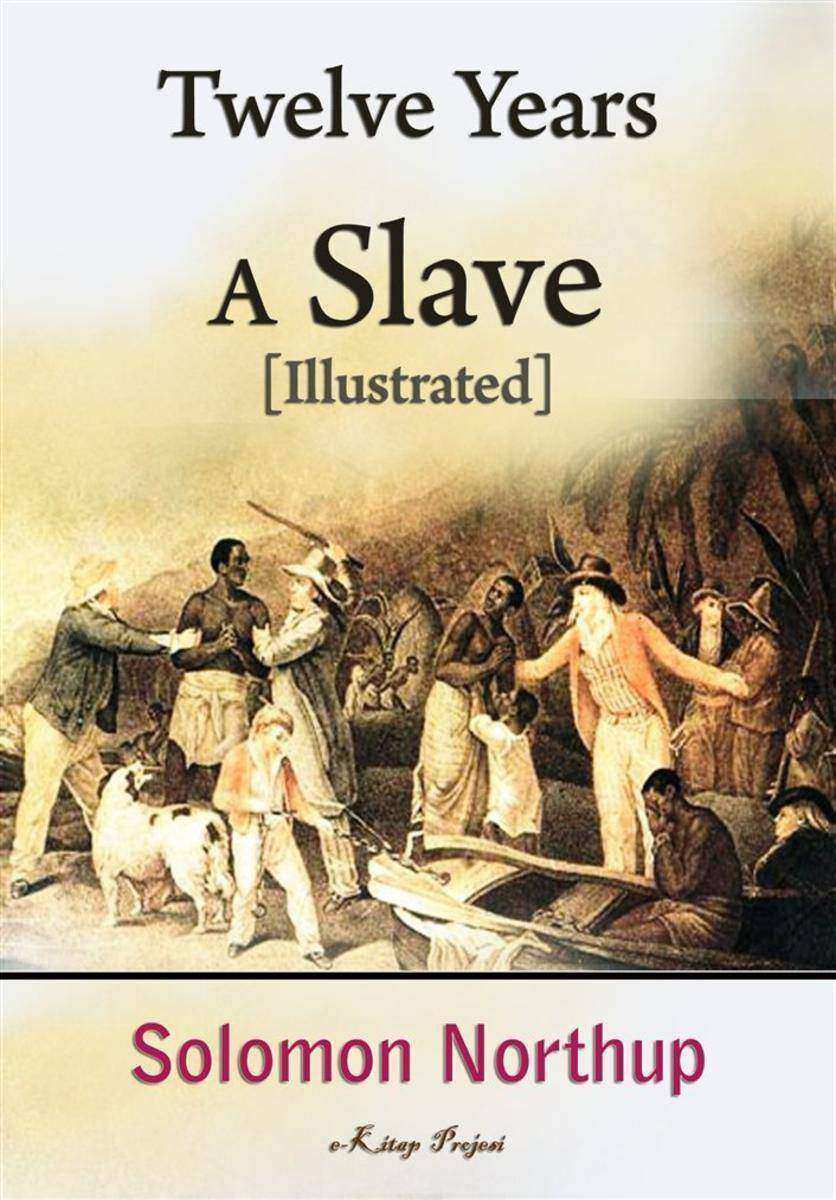
Twelve Years a Slave
¥28.04
Az év szenzációja, az a k?nyv, ami a fárasztó altatással járó küzdelmeket szeretetteljes, családi szertartásokká változtatja. Ez a világszerte gyermekek százezrein kipróbált újszer? módszer minden gyereket segít békésen álomba ringatni. Azt beszélik, Vilmos herceg és Katalin hercegn? kisfia, Gy?rgy herceg is erre a mesére alszik el... Az Aludj el szépen, Bendegúz! immár 40 országban utasít maga m?gé mindenkit a sikerlistákon annak k?sz?nhet?en, hogy Ehrlin pszichológusként egy olyan mesét írt, amely t?kéletesen alkalmas minden gyermek megnyugtatására és k?nny? elaltatására. Ahogy a szerz? fogalmaz a t?rténet a b?lcs?ringatás megfelel?je mese formájában, épp ezért mindenkit álomba ringat. A hazai kiadás kül?nlegességét az adja, hogy a nemzetk?zileg is elismert grafikus, Agócs ?risz készítette hozzá a rajzokat. "Nem tudom, hogyan ér véget a t?rténet, mert mindig elalszom. Remélem, sosem tudom meg!" – Amazon.com (egy hálás anyuka kommentje) "Fáradt szül?társak a világ minden pontjáról, itt a k?nyv, amire mindig is vágytatok. Ha még nem kaptátok meg mástól, most azonnal rendeljétek meg magatoknak." – Metro "A legbékésebb altató mese, amit valaha olvastunk.” – Daily Mail
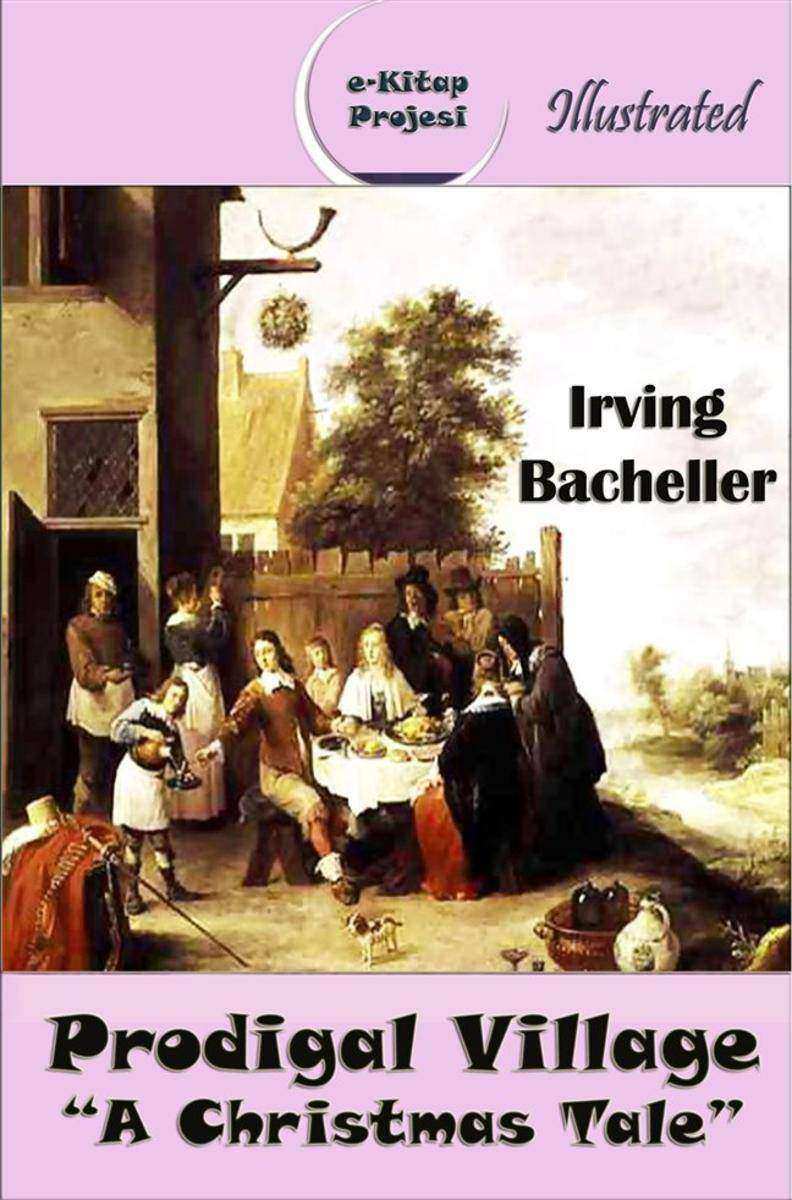
Prodigal Village: "A Christmas Tale"
¥18.74
Through the Looking-Glass, and What Alice Found There (1871) is a novel by Lewis Carroll (Charles Lutwidge Dodgson), the sequel to Alice's Adventures in Wonderland (1865). The themes and settings of Through the Looking-Glass make it a kind of mirror image of Wonderland: the first book begins outdoors, in the warm month of May (4 May), uses frequent changes in size as a plot device, and draws on the imagery of playing cards; the second opens indoors on a snowy, wintry night exactly six months later, on 4 November (the day before Guy Fawkes Night), uses frequent changes in time and spatial directions as a plot device, and draws on the imagery of chess. In it, there are many mirror themes, including opposites, time running backwards, and so on. Short Summary: Alice is playing with a white kitten (whom she calls "Snowdrop") and a black kitten (whom she calls "Kitty")—the offspring of Dinah, Alice's cat in Alice's Adventures in Wonderland—when she ponders what the world is like on the other side of a mirror's reflection. Climbing up on the fireplace mantel, she pokes at the wall-hung mirror behind the fireplace and discovers, to her surprise, that she is able to step through it to an alternative world. In this reflected version of her own house, she finds a book with looking-glass poetry, "Jabberwocky", whose reversed printing she can read only by holding it up to the mirror. She also observes that the chess pieces have come to life, though they remain small enough for her to pick up. Upon leaving the house (where it had been a cold, snowy night), she enters a sunny spring garden where the flowers have the power of human speech; they perceive Alice as being a "flower that can move about." Elsewhere in the garden, Alice meets the Red Queen, who is now human-sized, and who impresses Alice with her ability to run at breathtaking speeds. This is a reference to the chess rule that queens are able to move any number of vacant squares at once, in any direction, which makes them the most "agile" of pieces. The Red Queen reveals to Alice that the entire countryside is laid out in squares, like a gigantic chessboard, and offers to make Alice a queen if she can move all the way to the eighth rank/row in a chess match. This is a reference to the chess rule of Promotion. Alice is placed in the second rank as one of the White Queen's pawns, and begins her journey across the chessboard by boarding a train that literally jumps over the third row and directly into the fourth rank, thus acting on the rule that pawns can advance two spaces on their first move.

The Worlds of Joe Shannon
¥4.58
Jung’a g?re i? dünyam?za y?nelik de ?e?itli yap?lar?m?z vard?r. Her insanda hem di?ili?e ait bir?davran???ve hissedi? yap?s?( ki buna “anima” ad?n? vermi?tir) hem de erkekli?e ait bir yap? (“animus”) vard?r. Ona g?re bu iki yap? aras?ndaki dengeye ait sorunlar cinsel kimlik bozukluklar?ndan,??ki?ilik?bozukluklar?na dek ?ok farkl? psikiyatrik bozukluklara yol a?abilmektedir.?Bunlar?n en alt?nda ise, “kendilik” dedi?imiz as?l bizim i?imizdeki??z?olarak dü?ünülebilecek olan, rüyalar?m?zda farkl?la?arak ortaya ??kan adeta yerkürenin merkezindeki ma?ma katman? gibi enerjik bir yap? vard?r. ????NDEK?LER ?Carl Gustav Jung’un Ya?am ?yküsü?B?R?NC? B?L?M:?JUNG PS?KOLOJ?S?NE G?R??ANAL?T?K PS?KOLOJ?Bilin? ve Bilin?d???n?n ??leviKi?ilik Kuram?Psikoterapi SüreciJung’un psikoloji-psikiyatri bilimine yapt??? katk?larBilincin ?ne ??k???Bilincin ??levleri??levlerin y?netimi:Psikolojik tipler &?Dünyaya y?nelik tutumlar:D??ad?nüklük??e d?nüklükBilin?d???: Ki?isel ve Kolektif Bilin?d???Bilin? ve bilin?d??? ili?kisi:Jung ve E?zamanl?l?kE?zamanl?l?k –Jung’un Ger?ekli?e Yan?t?G?LGE KAVRAMI VE JUNG.. ? ?K?NC? B?L?M: FREUD VE JUNG ARASINDAK? FARKLAR Edebiyat Konusunda Freud ve Jung'un Yakla??mlar?n?n K?yaslanmas?FREUD VE JUNG DA PS?KANAL?Z VE D?N..Edebiyat Konusunda Freud Ve Jung'un Yakla??mlar?n?n K?yaslanmas?PS?KANAL?Z VE D?NPS?KANAL?ZDE R?YA YORUMU FREUD VE JUNG.. ? ???NC? B?L?M: JUNG VE D?RT ARKET?P.. ? D?RD?NC? B?L?M: JUNG VE PS?KANAL?T?K KURAM JUNG PS?KOLOJ?S?NE A?T BAZI KAVRAMLARKollektif Bilin?alt?nda bulunan belli ba?l? arketipler:K???L???N GEL???M?YA?AM D?NEMLER???LEVLERR?YALAR VE S?MGELERJUNG TERAP?S?PS?KOTERAP?DE S?MGELER?N KULLANIMIR?YALAR VE S?MGELERR?YALAR VE YORUMLARELE?T?R?LER G?R??LERArketip Kavram? ve Marka Ki?ilikleriStratejik A??dan Marka Ki?ilikleriJung'a G?re Ki?ilik Yap?s?Ki?isel Bilin?alt? ? BE??NC? B?L?M: Analitik Psikoloji Temel ?lke ve Kavramlar CARL GUSTAV JUNG'da,?E?zamanl?l?k –Jung’un Ger?ekli?e Yan?t?TEOR?ArketiplerAnne ArketipiManaG?lgePersonaAnima ve animusDi?er arketipler?nsan akl?n?n dinamikleriBenlikE?zamanl?l?k ? ALTINCI B?L?M: JUNG ?ZER?NE KISA B?R ?NCELEME Arketip Kavramlar?Eril Arketipler:Di?il Arketipler:K?tüler:As?l Mesele:?Carl Gustav Jung ve Analitik Psikoloji (?zet ve Kar??la?t?rma) ? YED?NC? B?L?M: CARL GUSTAV JUNG VE PS?KOLOJ? YEN? B?R D?NEM “B?L?N?ALTININ ??Z?M?”Carl Jung'un Astroloji Hakk?ndaki?S?ylemleriJUNG’ DAN BAZI S?ZLER: ? SEK?Z?NC? B?L?M: SONU?LAR .. ? DOKUZUNCU B?L?M: JUNG PS?KOLOJ?S?NE A?T BAZI KAVRAMLAR K???L???N GEL???M??nsan akl?n?n dinamikleriBenlikE?zamanl?l?kHayvan Davran??lar?na Psikolojik Yakla??mlar?nsan Davran??lar?n?n Anla??lmas?nda Bir Yakla??m: Psikoanalitik KuramFreud ve Evrimsel Biyoloji: Psikanalitik Kuram'?n Ele?tirisiFELSEFEN?N PS?KANAL?Z ?ZER?NE ETK?LER?…B?L?N?DI?ININ KARANLIK YANIJUNG’A G?RE C?NSELL???N ??LEV?…Komplekslerin TipolojisiLibido Ve ?tkiler ve YükseltilmesiLibidonun Dinami?iFreud’dan Sonra Libido
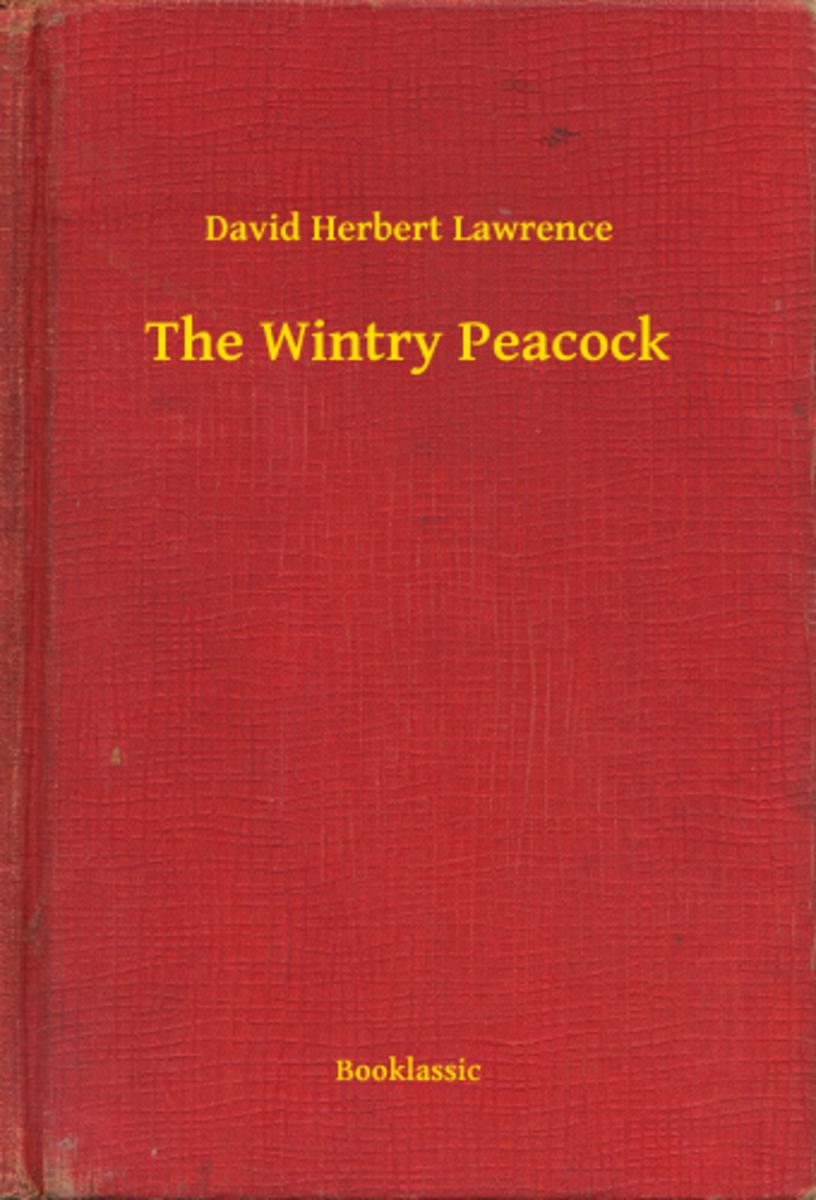
The Wintry Peacock
¥8.01
– A rosszak gyztek – kérdezte csalódottan a lány. Lecvekelt, és a kórházfolyosó fehérre festett falához simult, mintha ezzel is jelezni akarná, hogy nem hajlandó annyiban hagyni a dolgot. – Ez nem gyerekmese, kislány! A küzdelem gyakran a gonosz boszorka és a tzokádó sárkány kzt dl el – tárta szét a kezét Varga –, a bátor lovag már az elején meghalt szifiliszben.” Egyetlen, kiskaliber golyó a fejbe. A tettes profi bérgyilkos. Varga László nyomozó ügyész számára nagyon hamar személyes kérdéssé válik a megbízó felkutatása: három olyan n is belekeveredik az ügybe, aki fontos neki. A hajsza tbb szálon fut, a víg zvegy, az ukrán kokaincsempészek és a polgármester is célkeresztbe kerül. A fejesek legszívesebben eltussolnák az egészet, de a helyi média lecsap a botrányra. Kzben Varga félreérthetetlen üzenetet kap: jobban tenné, ha visszavenne az elánból. s még a helyi futballcsapat bennmaradása is tle függ. Egyszer féltékenység, alvilági leszámolás vagy politikai gyilkosság Melyik az a pont, ahol Varga végre rájn, hogy bábként rángatják Albert Levente krimisorozatának els ktete. Hiteles karakterek, váratlan fordulatok, elképzelt vidéki nagyváros, foci, szerelem, gasztronómia és humor. Sok humor.

Végjáték
¥57.31
1992. áprilisában Los Angeles hat napra csatatérré változott. A három és fél milliós város megmutatta a világnak, mi t?rténik, ha a régi t?rvények érvényüket vesztik. A gyújtogatással, fosztogatással, rablással és gyilkossággal terhes zavargásoknak csak a Nemzeti Gárda és a hadsereg együttes ereje volt képes véget vetni a rend?rség teljes kudarca után. A munkából hazatér?, ártatlan Ernesto Verát még a zavargások els? napján bandatagok megtámadják. Ezzel olyan megh?kkent? eseménysor indul el, amely behálózza a tizenhét egyedi hangon megszólaló szerepl? életét. Regényében Ryan Gattis azoknak a szemsz?géb?l mutatja be az eseményeket, akiket még egyetlen riporter sem szólaltatott meg: a chicano b?n?z?k, alvilági bandatagok szemén át. Soha, senki nem kutatta és ismerte meg olyan mélységben ezeket a bandákat, mint Gattis. A sodró lendület?, filmszer? regény sokkolóbb, mint a Drót, és olyan er?teljes, akár a Breaking Bad –nem csak egy p?rg?s thriller, hanem a bosszú, h?ség és árulás leny?g?z? t?rténete, ami egyszerre Los Angelesé, és az egész Egyesült ?llamoké is, mely lemeztelenítve áll el?ttünk minden hazugságával, el?ítéletével és teljes t?rténelmével együtt. A k?tetet Varró Attila m?fordító és filmkritikus (Harcosok klubja, ?ld meg Carter-t!) ültette át magyar nyelvre.
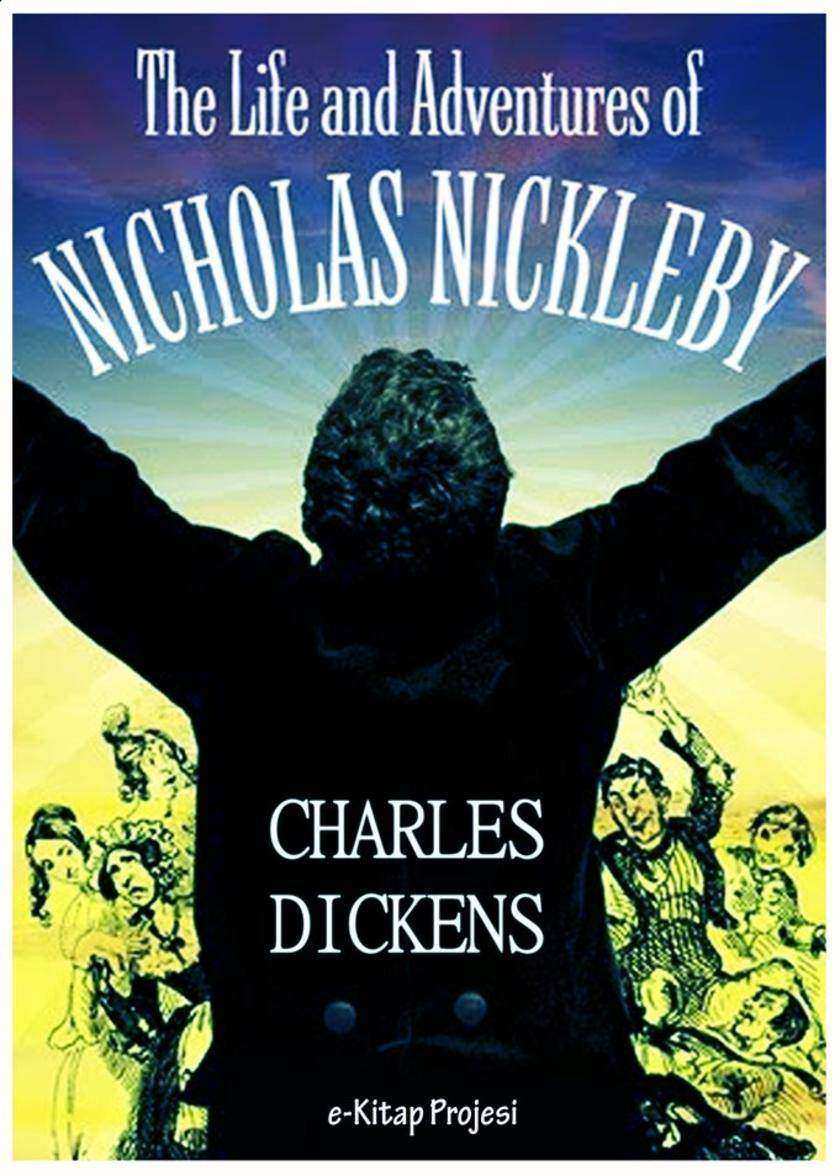
The Life and Adventures of Nicholas Nickleby
¥28.04
The Winter's Tale is a play by William Shakespeare, originally published in the First Folio of 1623. Although it was grouped among the comedies, some modern editors have relabelled the play as one of Shakespeare's late romances. Some critics consider it to be one of Shakespeare's "problem plays", because the first three acts are filled with intense psychological drama, while the last two acts are comedic and supply a happy ending. The play has been intermittently popular, revived in productions in various forms and adaptations by some of the leading theatre practitioners in Shakespearean performance history, beginning after a long interval with David Garrick in his adaptation called Florizel and Perdita (first performed in 1754 and published in 1756). The Winter's Tale was revived again in the 19th century, when the third "pastoral" act was widely popular. In the second half of the 20th century The Winter's Tale in its entirety, and drawn largely from the First Folio text, was often performed, with varying degrees of success. Short Summary of the Tale: John Fawcett as Autolycus in "The Winter's Tale" (1828) by Thomas Charles WagemanFollowing a brief setup scene the play begins with the appearance of two childhood friends: Leontes, King of Sicilia, and Polixenes, the King of Bohemia. Polixenes is visiting the kingdom of Sicilia, and is enjoying catching up with his old friend. However, after nine months, Polixenes yearns to return to his own kingdom to tend to affairs and see his son. Leontes desperately attempts to get Polixenes to stay longer, but is unsuccessful. Leontes then decides to send his wife, Queen Hermione, to try to convince Polixenes. Hermione agrees and with three short speeches is successful. Leontes is puzzled as to how Hermione convinced Polixenes so easily, and Leontes suddenly goes insane and suspects that his pregnant wife has been having an affair with Polixenes and that the child is a bastard. Leontes orders Camillo, a Sicilian Lord, to poison Polixenes. Camillo instead warns Polixenes and they both flee to Bohemia. Furious at their escape, Leontes now publicly accuses his wife of infidelity, and declares that the child she is bearing must be illegitimate. He throws her in prison, over the protests of his nobles, and sends two of his lords, Cleomenes and Dion, to the Oracle at Delphi for what he is sure will be confirmation of his suspicions. Meanwhile, the queen gives birth to a girl, and her loyal friend Paulina takes the baby to the king, in the hopes that the sight of the child will soften his heart. He grows angrier, however, and orders Paulina's husband, Lord Antigonus, to take the child and abandon it in a desolate place. Cleomenes and Dion return from Delphi with word from the Oracle and find Hermione publicly and humiliatingly put on trial before the king. She asserts her innocence, and asks for the word of the Oracle to be read before the court. The Oracle states categorically that Hermione and Polixenes are innocent, Camillo an honest man, and that Leontes will have no heir until his lost daughter is found. Leontes shuns the news, refusing to believe it as the truth. As this news is revealed, word comes that Leontes' son, Mamillius, has died of a wasting sickness brought on by the accusations against his mother. Hermione, meanwhile, falls in a swoon, and is carried away by Paulina, who subsequently reports the queen's death to her heartbroken and repentant husband. Leontes vows to spend the rest of his days atoning for the loss of his son and his queen.

Megvalósult álom
¥51.26
Rena Olsen nagysiker? pszichológiai thrillerében, melyet a BookPage a 2016-os év regényének jel?lt mystery kategóriában, egy fiatal n?nek szembe kell néznie a kétségbeejt? kérdéssel: mi van, ha mindaz, amit életében normálisnak és igaznak gondolt - nem volt az? Clara Lawsont egy pillanat alatt szakítják ki megszokott életéb?l, fegyveresek rohanják le az otthonát, ahol férjével lakik. Az utolsó, amit - mik?zben elhurcolják - férje szájából hallhat: ne mondj nekik semmit! A fiatal írón? els? regénye, mely a nemzetk?zi gyermekkereskedelem és a prostitúció világát mutatja be, pontosan olyan düh?s kiáltás a n?k alávetettsége ellen, mint A lány a vonaton vagy Fiona Barton Az ?zvegy cím? regénye. Letehetetlen, rabul ejt? thriller, egy ismeretlen és fékezhetetlenül vad világból.

A f?n?k
¥58.29
"Negyvenkilenc voltam, amikor megszületett az els? és nyilvánvalóan egyetlen gyermekem, Linda.? Bár k?rnyezetem felkészített rá, hogy szinte minden ismer?snek, s?t idegennek is lesz valamilyen reakciója a hírrel kapcsolatban, talán még engem is meglepett, hogy milyen mennyiségben kaptam hideget-meleget. Ez a k?nyv az én verzióm, de nemcsak a saját sztorimat mesélem el benne, hanem hiszek abban, hogy segíteni tudok másoknak is a gondolataimmal.? Ha nem is tudom megoldani, hogy mindenki, aki szeretne, anyává válhasson, de bízom benne, az olvasóim céljainak eléréséhez kell? inspirációt nyújthatok." ?va ?szintén a kései teherbe esésr?l, gyermekvárásról, az els? hónapokról együtt.? Fej?s ?va új k?nyve egy személyes, naplószer? írás élete legutóbbi igen fontos eseményér?l, gyermeke születésér?l. ?szinte és humoros vallomások, t?rténetek gyerekvárásról, nevelésr?l, a mindennapokról. Egyfajta reflexió a sokakat foglalkoztató témára: a negyven f?l?tti gyerekvállalásra.? Tabukra fittyet hányó írás, amely minden gyereket tervez? vagy éppen már nevel? n?nek ajánlott olvasmány, kortól függetlenül, hogy mindenki számára egyértelm? legyen: Nem vagy egyedül, egy cip?ben járunk ;-)
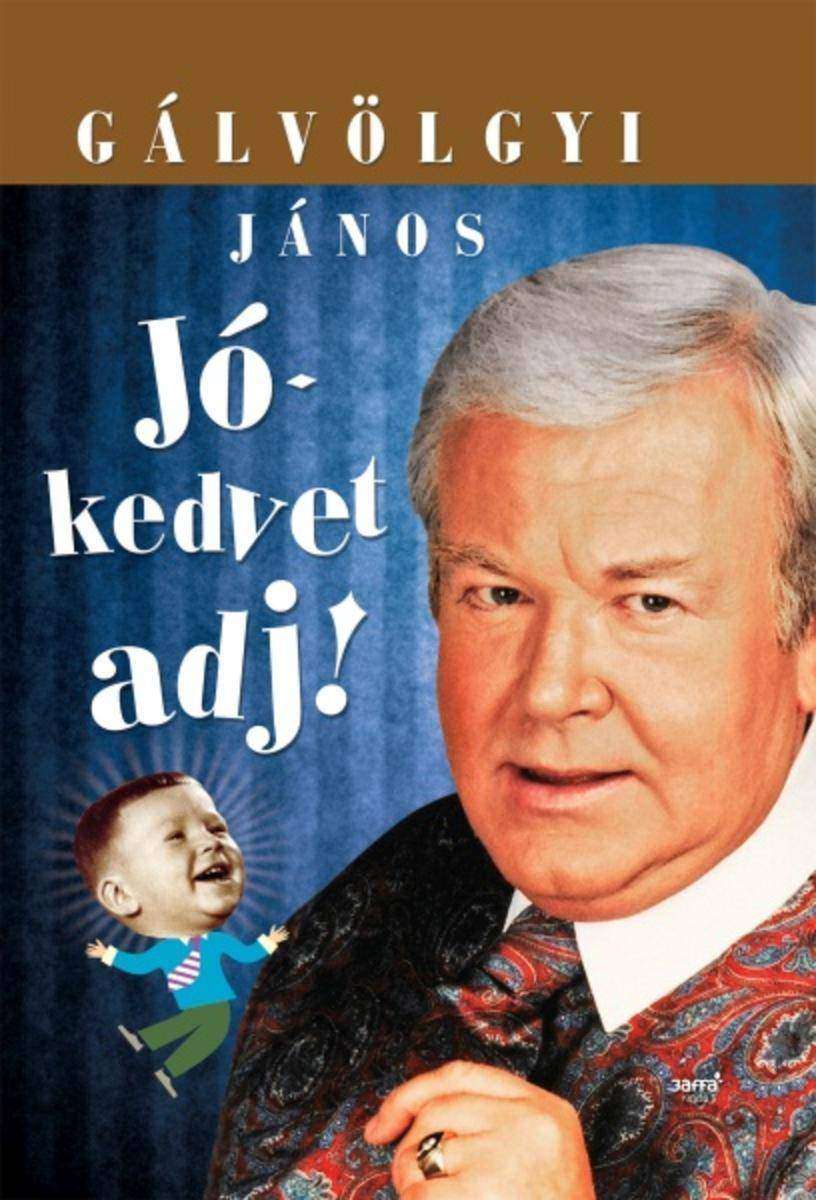
Jókedvet adj!
¥57.31
A regény Jókai munkásságának ahhoz a Fekete gyémántokkal megkezdett irányzatához kapcsolódik, melyben a modern ?nagyvilági” életet kívánta ábrázolni. A m? szerkezetileg két lazán ?sszefügg? részre tagolódik. Az els?, A ?tegnap” 1848-49-ben játszódik. F?h?se Illavai Ferenc, igazi Jókai alak: csúnya, de rettenthetetlenül bátor, m?velt, szerény, okos és jóságos. Gyámfiát és egyben unoka?ccsét, Opatovszky Kornélt t?bbsz?r kimenti kül?nféle halálos veszedelmekb?l, noha méltatlan rá, hogy ?r?k?séül megtartsa. Nagy szolgálatot tesz a gróf Tarnaváry családnak, életüket és vagyonukat is megmenti…. A második rész, A ?ma”: az 1860-as évek eleje, a Schmerling-korszak. Mind az Opatovszky-, mind a Tarnaváry-birtok t?nkrement az oktalan spekulációban és az egymással vívott harcban… A regény b?velkedik az izgalmas fordulatokban, ezért szerkezeti és jellemzési gyengéi ellenére kit?n? olvasmány.

Port Arthurtól Csuzimáig: Tengeri harcok az orosz-japán háborúban
¥51.01
830-ban járunk, amikor a Chazár Kaganátus határán lév? Sarkel várát fenyegetik a türkként emlegetett barbár magyar hordák.Megerit és Nekét, a két magyar nemzetség h?stettekr?l híres vezet?jét olyan barátság k?ti ?ssze, amelyet mindhalálig ?sszekovácsoltak a k?z?sen vívott portyák és csaták.Vajon kibontakozhat-e a barbár Megeri és Sarkel urának leánya, az erényes chazár Seliának a szerelme? Képes lesz-e Neké tragédiák sorozatában megt?rt szíve ismét szerelmesen dobogni? Vajon utoléri-e ?ket Kufi s Pempton, a dúsgazdag bizánci keresked? bosszúja?Ez a kalandokban, romantikában és fordulatokban gazdag t?rténet betekintést enged az ?smagyarok hétk?znapjaiba és felfogásukba szerelemr?l, bosszúról, idegenekr?l és becsületr?l.

Az árny csábítása
¥43.41
Karinthy legismertebb, legnépszer?bb m?ve mindmáig az ?gy írtok ti. Ez a m? hozta meg számára az ismertséget, ezzel a k?nyvével aratta els? igazi, nagy sikerét. A kávéházi játékokból, nemzedéktársainak kigúnyolásából alakult karikatúrasorozat id?vel tudatos enciklopédiává b?vült, s nemcsak a magyar szerz?k arcképcsarnoka teljesedett ki, hanem világirodalmi és m?faji tematikával is gazdagodott. Máig ható sikerének titka, hogy Karinthy a célba vett írói egyéniség egész karakterét, az alkotói modor és modorosság torzképét rajzolta meg. K?tetünk a Még mindig így írtok ti méltán híres gy?jteményén túl a korabeli lapokban megjelent k?zlések legjobb gúnyrajzait is tartalmazza.




 购物车
购物车 个人中心
个人中心



